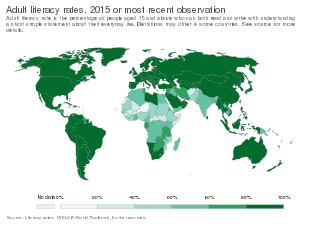 W
WLiteracy is popularly understood as an ability to read and write in at least one method of writing, an understanding reflected by mainstream dictionaries. In this view, illiteracy would be considered to be the inability to read and write.
 W
WThis is a list of countries by literacy rate. The figures represented are almost entirely collected by the UNESCO Institute for Statistics (UIS) on behalf of UNESCO, with 2015 estimates based on people aged 15 or over who can read and write. Where data is taken from a different source, notes are provided. The data is collated by mostly using surveys within the last ten years which are self-declared by the persons in question. UIS provide estimates based on these for the year 2015 with a Global Age-specific Literacy Projections Model (GALP).
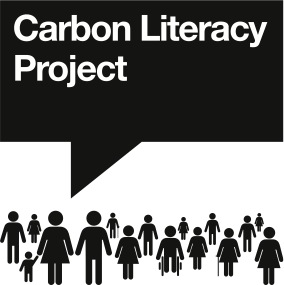 W
WCarbon Literacy is the awareness of climate change and the climate impacts of mankind's everyday actions. The term has been used in a range of contexts in scientific literature and in casual usage, but is most associated with The Carbon Literacy Project (CLP).
 W
WDyslexia, also known as reading disorder, is a disorder characterized by difficulty reading in individuals with otherwise unaffected intelligence. Different people are affected to different degrees. Problems may include difficulties in spelling words, reading quickly, writing words, "sounding out" words in the head, pronouncing words when reading aloud and understanding what one reads. Often these difficulties are first noticed at school. When someone who previously could read loses their ability, it is known as "alexia". The difficulties are involuntary and people with this disorder have a normal desire to learn. People with dyslexia have higher rates of attention deficit hyperactivity disorder (ADHD), developmental language disorders, and difficulties with numbers.
 W
WThe Joan Ganz Cooney Center is an independent, non-profit, non-partisan research and innovation group founded by Sesame Workshop to advance children's �literacy skills and foster innovation in children's learning through digital media.
 W
WThe Journal of Adolescent & Adult Literacy is a peer-reviewed academic journal published six times per year by Wiley-Blackwell. The current editors are Kathleen A. Hinchman and Kelly Chandler-Olcott. The journal is one of three journals published on behalf of the International Literacy Association. The journal covers "practical, classroom-tested ideas grounded in research and theory." The Journal of Adolescent & Adult Literacy was first printed under the title Journal of Developmental Reading in 1957, but the name was changed to the Journal of Reading in 1964 starting with Volume 8. The name was changed again in 1995 to the current title.
 W
WFrank Charles Laubach, from Benton, Pennsylvania was a Congregational Christian missionary educated at Union Theological Seminary and Columbia University, and a mystic known as "The Apostle to the Illiterates." In 1915, while working among Muslims at a remote location in the Philippines, he developed the "Each One Teach One" literacy program. It has been used to teach about 60 million people to read in their own language. He was deeply concerned about poverty, injustice and illiteracy, and considered them barriers to peace in the world.
 W
WLikbez was a campaign of eradication of illiteracy in Soviet Russia and Soviet Union in the 1920s and 1930s. The term was also used for various schools and courses established during the campaign. Nowadays this term is sometimes used in Russian as a slang for answers on common questions.
 W
WThe figures are based on the 2017 census by IBGE.
 W
WBefore World War II, the literacy rate in Romania ranked among the lowest in Europe. In 1930, at the time of the first official census, more than 38 percent of the population over seven years of age were considered illiterate: 50 percent of the women and over 25 percent of the men in the entire population of about 18 million were unable to read or write. In rural areas, where most of the population lived, illiteracy rate was considered even higher. Prominent reasons for the lack of literacy were that children of school age either were not enrolled in school or, if they were, did not attend classes regularly. There was also a fairly large percentage of children who left school without completing their studies or, having completed only the compulsory first four grades, relapsed into illiteracy in adult life.
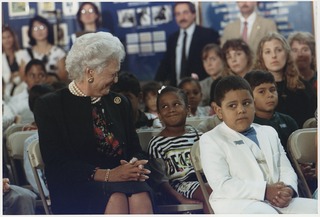 W
WLiteracy in the United States is 79% according to a 2019 report by the National Center for Educational Statistics. 21% of American adults are illiterate or functionally illiterate. According to the U.S. Department of Education, 54% of adults in the United States have literacy below the 6th-grade level.
 W
WA literacy test assesses a person's literacy skills: their ability to read and write. Literacy tests have been administered by various governments to immigrants. In the United States, between the 1850s and 1960s, literacy tests were administered to prospective voters, and this had the effect of disenfranchising African Americans and others with diminished access to education. Other countries, notably Australia, as part of its White Australia policy, and South Africa adopted literacy tests either to exclude certain racialized groups from voting or from immigrating.
 W
WMaestra is a 33-minute documentary film directed by Catherine Murphy, about the youngest women teachers of the 1961 Cuban Literacy Campaign.
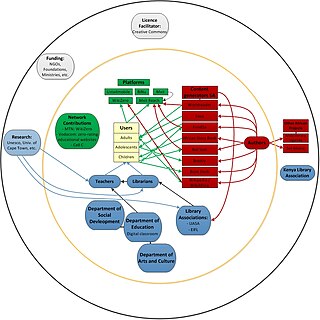 W
WMobile Literacy in South Africa refers to a range of informal education projects and initiatives that support the development of literacy and enable digital fluency while using mobile devices, especially mobile phones. Mobile literacy is also known by the abbreviation mLiteracy.
 W
WNightjohn is a book written by Gary Paulsen, first published in 1993. It is about slavery in the American South shortly before the time of the American Civil War. It was later made into a movie of the same name.
 W
WNumeracy is the ability to reason and to apply simple numerical concepts. Basic numeracy skills consist of comprehending fundamental arithmetical operations like addition, subtraction, multiplication, and division. For example, if one can understand simple mathematical equations such as 2 + 2 = 4, then one would be considered to possess at least basic numeric knowledge. Substantial aspects of numeracy also include number sense, operation sense, computation, measurement, geometry, probability and statistics. A numerically literate person can manage and respond to the mathematical demands of life.
 W
WIn social science and politics, power is the capacity of an individual to influence the actions, beliefs, or conduct (behaviour) of others. The term authority is often used for power that is perceived as legitimate or socially approved by the social structure, not to be confused with authoritarianism. Power can be seen as evil or unjust; however, power can also be seen as good and as something inherited or given for exercising humanistic objectives that will help, move, and empower others as well. Abraham Maslow notes that "in the hands of the immature, vicious, or emotionally sick, power is a horrible danger." In general, power is derived by the factors of interdependence between two entities and the environment. The use of power need not involve force or the threat of force (coercion). An example of using power without oppression is the concept "soft power," as compared to hard power. In corporate environments, the ethical instrumentality of power is achievement, and as such it is a zero-sum game. Much of the recent sociological debate about power revolves around the issue of its means to enable – in other words, power as a means to make social actions possible as much as it may constrain or prevent them.
 W
WThe Romanian literacy campaign was started by the Romanian Communist Party government through the Education Law of 1948 and nearly eliminated illiteracy in Romania within six years.
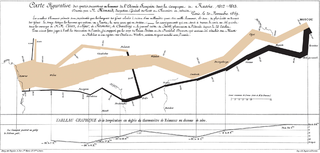 W
WVisual literacy is the ability to interpret, negotiate, and make meaning from information presented in the form of an image, extending the meaning of literacy, which commonly signifies interpretation of a written or printed text. Visual literacy is based on the idea that pictures can be "read" and that meaning can be through a process of reading.
 W
WThe Westcoast Reader is a literacy newspaper for beginning adult readers in British Columbia, Canada. Its purpose is to help English as a second language (ESL) and adult literacy learners develop reading and language skills, while providing interesting and relevant information with an adult focus.